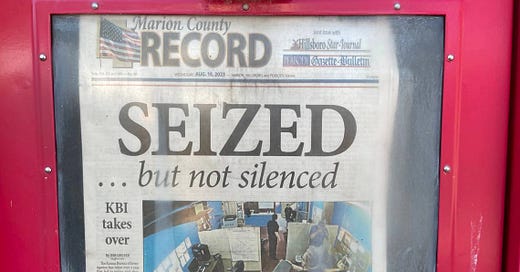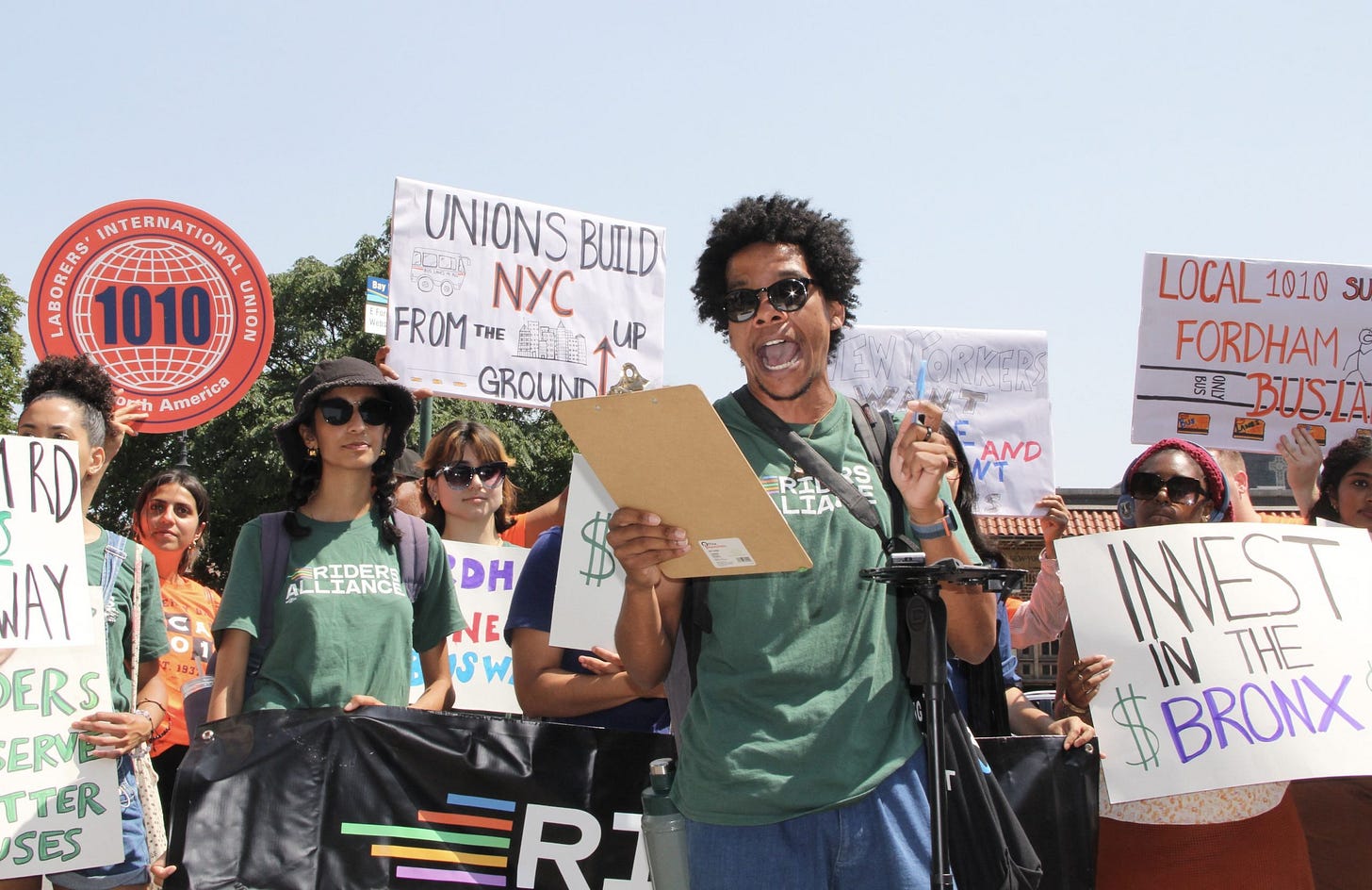The Kansas Newspaper Raid and Preserving a Free Press
On August 11 the Marion Record of Kansas experienced something almost unprecedented in the history of American journalism — its newsroom was raided by the local police department, and much of its equipment was hauled away.
The impetus for the raid came from a local restaurant owner upset that the paper had obtained records of her past DUI conviction. The police also raided the home of the paper’s editor and publisher, Eric Mayer, where he lived with his mother, 98-year-old Joan Meyer, who co-owned the weekly newspaper along with her son.
Shortly before she dropped dead the next day from the stress caused by the raids, Ms. Meyer, according to her son, worried that her life’s work with the newspaper had been in vain. She wondered aloud, “Where are all the good people to put a stop to this?”
Though she wouldn’t live to see it, the answer soon came. Press freedom groups denounced the raids. Offers of help poured in. The paper, with a circulation of 4,000, gained another 1,500 subscriptions from across the country. After cobbling together some aging computers and pulling an all-nighter, Meyer and his staff published an issue. It hit the streets of Marion on Wednesday. A giant Page 1 headline — “SEIZED… but not silenced” — appeared above a surveillance camera photo of the cops rummaging through the newspaper’s downtown office. The Marion Police Department would not get final word on whether the town would continue to have a newspaper.
“This just couldn’t stand,” Meyer told the Kansas Reflector. “If it did, it would be the end of people ever being able to send anything anonymously to a newspaper. It would be the end of news organizations ever pursuing any sort of controversial story.”
This kind of repression is rare in American history, but not entirely unknown. In 1837, Elijah Lovejoy, the editor of an anti-slavery newspaper in Alton, Illinois was shot and killed by a pro-slavery mob and the paper’s printing press was thrown in the river. In 1892, a white mob ransacked the offices of the Memphis Free Speech and Headlight after it published an anti-lynching editorial by Ida B. Wells. During World War I, socialist and anarchist publications were effectively shut down when the Post Office (at the behest of the Wilson administration) revoked their mailing privileges for opposing the war effort. Many other journalists, in the name of “objectivity,” have had their careers buried for too aggressively challenging power.
Still, the police raid on the Marion Record was a shocking departure from established norms for how news organizations are treated. The paper’s victory is to be celebrated. This attack was also emblematic of a larger right wing assault that has been emboldened by Donald Trump’s MAGA movement. The targets are not only journalists, but teachers, professors, librarians, scientists and anyone else who creates or shares knowledge that the far-right finds objectionable. The solidarity shown to the Marion Record is what will be needed everywhere to defeat this surging authoritarianism.
More than two local newspapers a week are dying, according to a 2022 report by Northwestern University’s Medill School of Journalism. Seventy million Americans live in a news desert, defined as a county with one or zero news outlets. In most large cities, daily newspapers are husks of their former selves. They are owned by corporate chains determined to extract every last drop of profit before casting them aside. Late capitalism, not dramatic, Gestapo-style police raids, is the greatest threat to American journalism.
Here at The Indypendent, we were able to grow rapidly in the late 2010s. We expanded our monthly print run to 40,000 and placed outdoor newspaper boxes around the city. We revamped our website and launched a weekly radio show on WBAI-99.5 FM. We persevered through the pandemic and are still standing. But, we need the contributions of readers like yourself more than ever now. If you were shocked by what happened in Marion and thrilled to see the good guys win one, keep this in mind: Many other publications — like this one — could go silent without jack-booted security forces ever having to lift a finger, if reader support falters.
Whether you make a one-time contribution today or become an Indy monthly sustainer for $5 per month or more, you too can be a champion of a free press.
Our Fabulous Summer Interns
You can find our August edition on the street and online. In addition to our coverage of a resurgent labor movement, we have several in-depth articles written by our summer interns Owen Schacht, Lydia Wei and Elsie Carson-Holt (pictured above).
NYCHA Residents in Chelsea Resist Demolition Plan That Could Displace Them
By Elsie Carson-Holt
Where’s the Bus? The Mayor Is Failing Transit Targets and New York Riders
By Owen Schacht
Hard-Working Canners Talk about Their Haul and What Keeps Them Going
By Lydia Wei
When you support The Indy, you’re not only keeping independent media alive and flourishing today but you’re investing in its future. In these short testimonials, they describe their experiences.
My Summer at the Indy: Learning New Skills and Discovering Community Journalism at Its Finest
By Elsie Carson-Holt
Joining the Indy Family: My Two Summers with The Indypendent
By Owen Schacht
Click here to read more testimonials from past Indy interns and volunteers.
Yes, I want to donate today!
The Indypendent News Hour
On this week’s Indypendent News Hour on WBAI-99.5 FM, we spoke with Indy labor correspondent Steve Wishnia about a recent victory for 250,000 NYC municipal retirees at risk of having their traditional Medicare coverage switched to a private Medicare Advantage plan run by the Aetna insurance company. We also spoke with Steve about the history behind Hollywood’s powerful labor unions and then spoke with Indy film critic Peter Carellini who is a member of the SAG-AFTRA union and a union strike captain. Later in the show, our co-hosts John Tarleton and Amba Guerguerian discussed the Marion, Kansas newspaper raid and took calls from listeners. Full show link here.









